Abba Lawan
FT-SWRL: A Fuzzy-Temporal Extension of Semantic Web Rule Language
Nov 27, 2019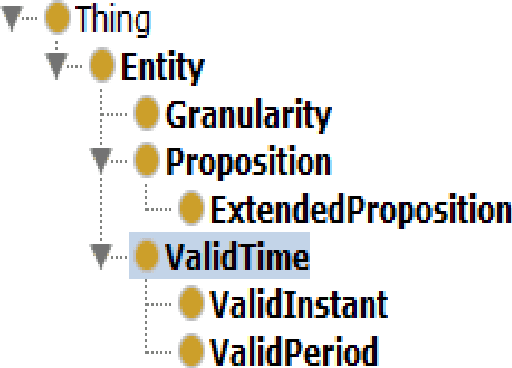
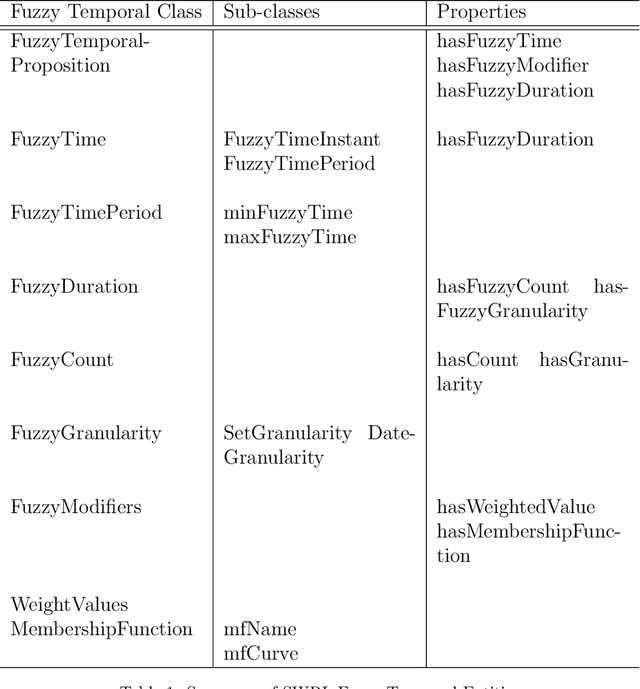
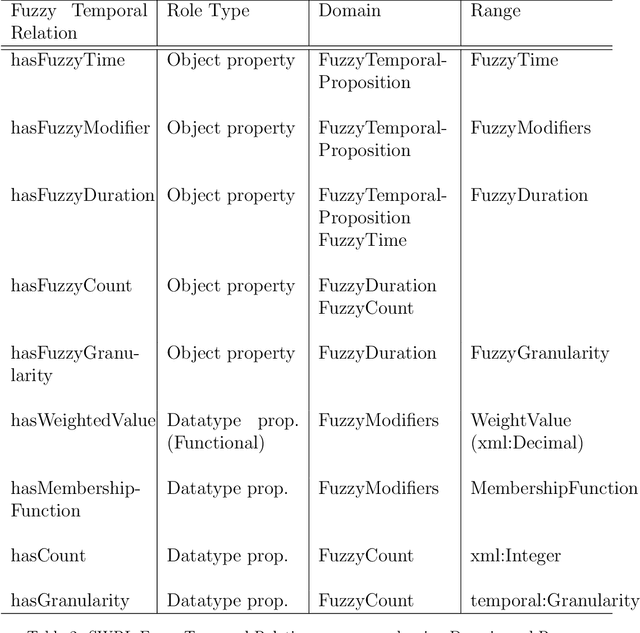

Abstract:We present, FT-SWRL, a fuzzy temporal extension to the Semantic Web Rule Language (SWRL), which combines fuzzy theories based on the valid-time temporal model to provide a standard approach for modeling imprecise temporal domain knowledge in OWL ontologies. The proposal introduces a fuzzy temporal model for the semantic web, which is syntactically defined as a fuzzy temporal SWRL ontology (SWRL-FTO) with a new set of fuzzy temporal SWRL built-ins for defining their semantics. The SWRL-FTO hierarchically defines the necessary linguistic terminologies and variables for the fuzzy temporal model. An example model demonstrating the usefulness of the fuzzy temporal SWRL built-ins to model imprecise temporal information is also represented. Fuzzification process of interval-based temporal logic is further discussed as a reasoning paradigm for our FT-SWRL rules, with the aim of achieving a complete OWL-based fuzzy temporal reasoning. Literature review on fuzzy temporal representation approaches, both within and without the use of ontologies, led to the conclusion that the FT-SWRL model can authoritatively serve as a formal specification for handling imprecise temporal expressions on the semantic web.
The Semantic Web Rule Language Expressiveness Extensions-A Survey
Mar 27, 2019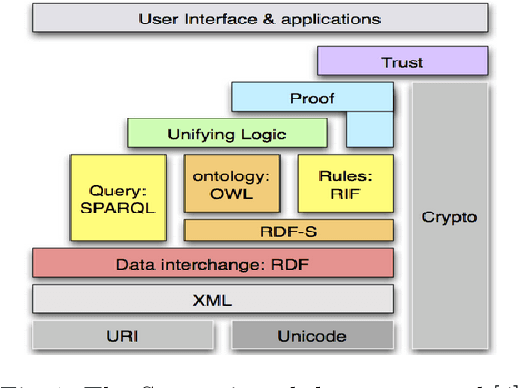
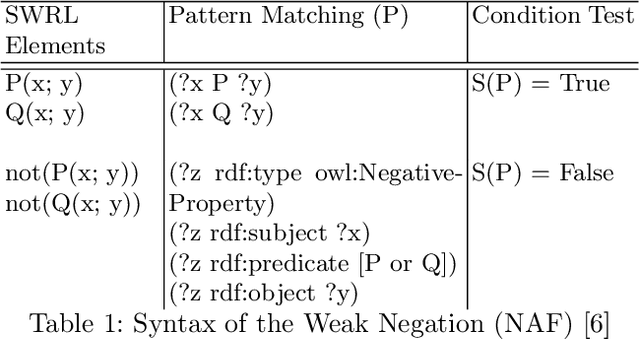
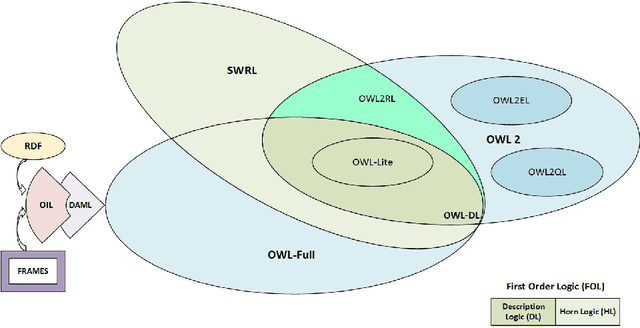

Abstract:The Semantic Web Rule Language (SWRL) is a direct extension of OWL 2 DL with a subset of RuleML, and it is designed to be the rule language of the Semantic Web. This paper explores the state-of-the-art of SWRL's expressiveness extensions proposed over time. As a motivation, the effectiveness of the SWRL/OWL combination in modeling domain facts is discussed while some of the common expressive limitations of the combination are also highlighted. The paper then classifies and presents the relevant language extensions of the SWRL and their added expressive powers to the original SWRL definition. Furthermore, it provides a comparative analysis of the syntax and semantics of the proposed extensions. In conclusion, the decidability requirement and usability of each expressiveness extension are evaluated towards an efficient inclusion into the OWL ontologies.
 Add to Chrome
Add to Chrome Add to Firefox
Add to Firefox Add to Edge
Add to Edge